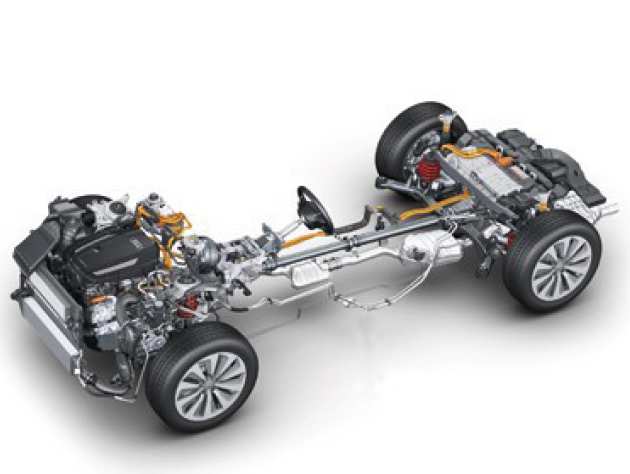Control of hybrid electric vehicles

There are growing concerns regarding climate change, air pollution and the finite supply of fossil fuels. This has led manufacturers, regulators and consumers to push the whole automotive industry through a historical transition towards an electrified vehicle fleet. A significant step in this process has been the wide range of launches of hybrid electric vehicles (HEVs) that have been released commercially to significantly improve the fuel economy of vehicles on the road. It is estimated that approximately 18% of new vehicles sold in Europe in 2020, and 7% in the US, will be HEVs.
It is therefore of great interest to study how the benefits of a hybrid powertrain can be maximised. Researchers have been studying the energy management problem, which involves determining the optimal power share between multiple sources in a hybrid powertrain. This is the responsibility of the supervisory control system (SCS) of the vehicle.
The research in this group is focused particularly on the design of SCSs for series HEVs with the objective to minimise fuel consumption. This has involved the design of novel real-time implementable control strategies that employ control maps to maximise the efficiency of the overall powertrain. Approaches to design robust heuristic control systems are also being researched. In addition to the optimisation of fuel economy, the group is also developing strategies to reduce emissions and battery degradation.
Apart from the SCS, research into component level control of the hybrid powertrain is also being pursued. This has been particularly focused on control of the bi-directional DC-DC converter, as well as the voltage control of the DC bus to reduce converter losses. Lastly, the group is collaborating with Georgia Institute of Technology to design SCSs for parallel plug-in HEVs as well as to compare the performances of pure-electric and blended modes of operation. There is also an ongoing collaboration with University of Southampton for research into the design of SCSs that utilise predictive and globally optimal control methodologies, and for research into the lap-time minimisation of sports HEVs.

CAP People
- Simos Evangelou, s.evangelou@imperial.ac.uk
- Wassif Shabbir, wassif.shabbir@gmail.com
External
- Jerome Meisel, jerome.meisel@ece.gatech.edu
-
Roberto Lot, University of Southampton, roberto.lot@soton.ac.uk


